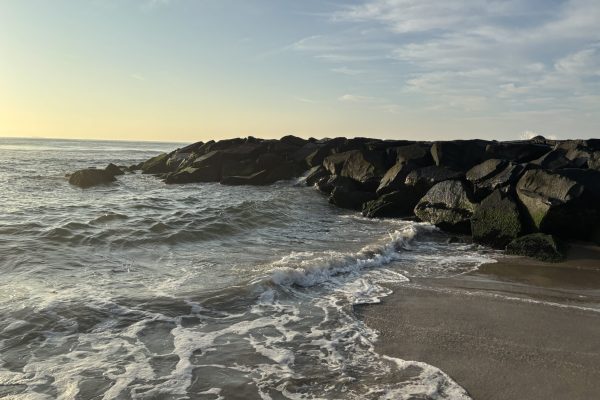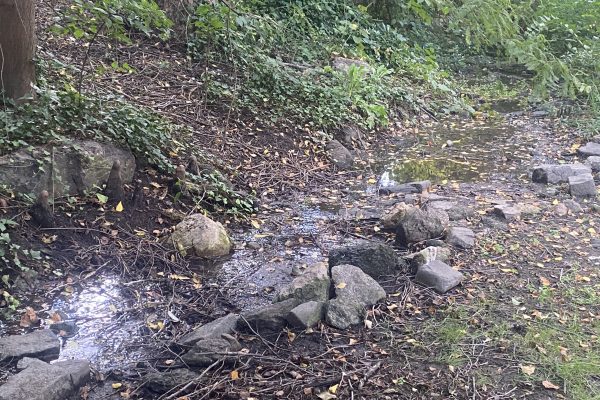“The embryo is considered to be mere water until the fortieth day.”
—Babylonian Talmud, Yevamot 69b
There is nothing “mere” about water.
We couldn’t see the embryo,
but we saw water enter my womb,
carrying a cluster of cells, hopes, and DNA,
a Divine Spark soaked in darkness.
There is nothing mere about water.
Blood tests, urine tests,
numbers and letters coded in liquid.
We treaded water in the rising tide
until it spilled over, spelling “loss.”
The nurse brought me ice chips in the hospital,
my gown drowned in feverish sweat,
as my body released “mere water.”
There was nothing mere.
There was so much more.
First immersion
El Malei Rakhamim,
God, Saturated in Womb-Love,
I am drowning, I am drenched
I am a torrential downpour
I am made of tears
Divine Mother,
Dissolve me in Your mikveh
Cradle me in Your waters
Diffuse me, cell by cell,
until I am once again One
with the Womb of the World
Second immersion
Shekhinah, bless my womb
with waters that grow
A Divine Spark whose glow
floods the darkness
Sing me to shore,
a wave on Your waters
Returning, rebirthing,
emerging whole
There is nothing “mere”
about water
Third immersion
Blessed are You, Source of Life,
God of Hannah, Sarah, Rachel, and Rebecca,
Who cleanses, heals and renews us in living, breathing waters











